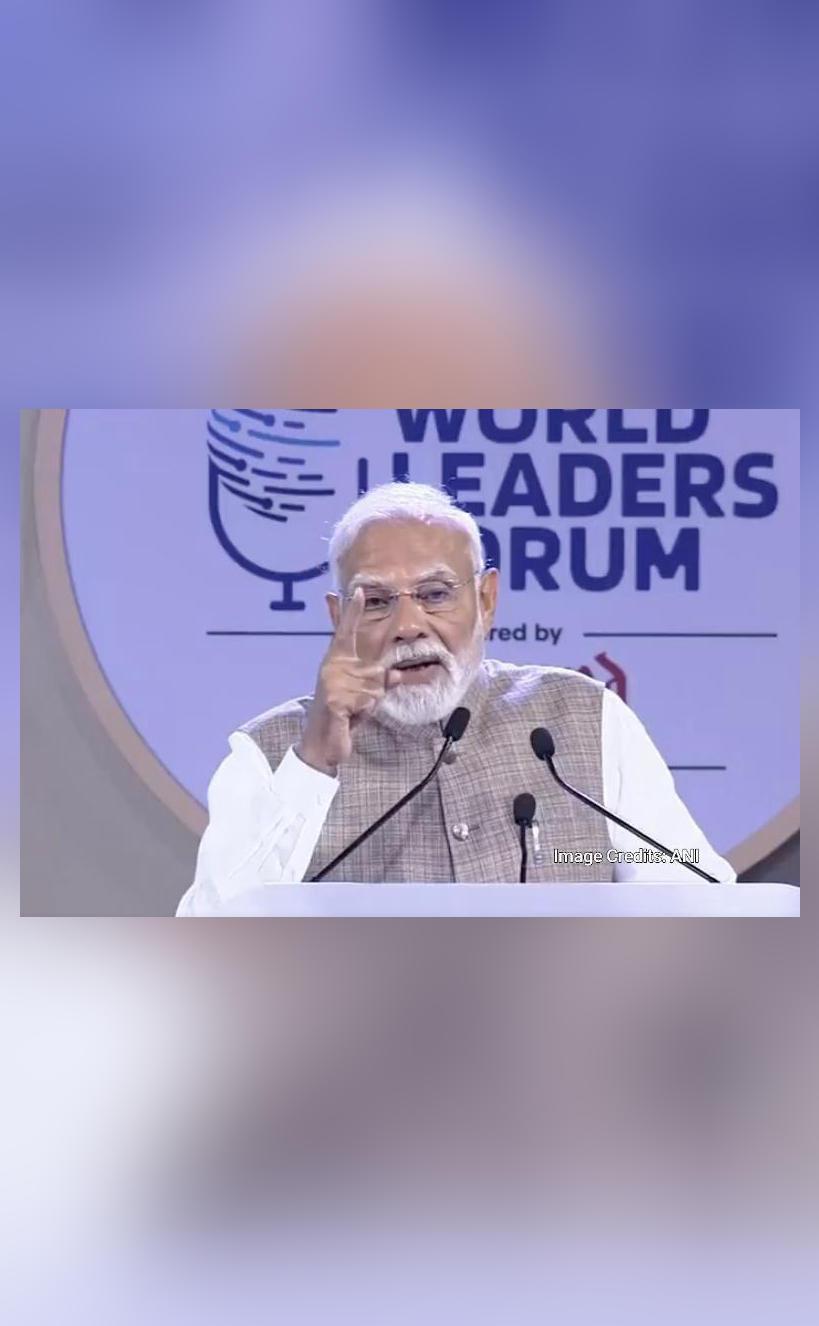
We’re not people who sit on banks of stagnant water & throw pebbles: PM
Addressing the ET World Leaders Forum 2025, Prime Minister Narendra Modi emphasized India’s commitment to driving global growth and transformation. He highlighted the country’s remarkable progress in recent years and its potential to propel the world out of a slow growth rate. In his keynote speech, PM Modi drew a vivid analogy to illustrate India’s approach to problem-solving, saying, “We’re not the people who sit on the banks of stagnant water and throw pebbles. We are the people who can turn a fast-flowing stream.”
The Prime Minister’s statement reflects India’s unwavering commitment to innovation, entrepreneurship, and economic growth. Under his leadership, India has made significant strides in reforming its economy, improving its business environment, and empowering its citizens. The country’s ‘Reform, Perform, Transform’ mantra has become a hallmark of its approach to governance, driving sustainable development and inclusive growth.
India’s economic story is one of remarkable transformation. In recent years, the country has emerged as a global hub for startups, entrepreneurship, and innovation. Its digital economy has grown exponentially, with the number of internet users surpassing 700 million. India’s manufacturing sector has also witnessed significant growth, driven by the ‘Make in India’ initiative, which aims to make the country a global manufacturing powerhouse.
The Prime Minister’s emphasis on India’s ability to turn a ‘fast-flowing stream’ is a testament to the country’s capacity to respond to challenges and seize opportunities. India’s growth story is built on the back of its vibrant startup ecosystem, which has given rise to some of the world’s most innovative and successful companies. The country’s entrepreneurs are known for their grit, resilience, and ability to innovate, which has enabled them to overcome challenges and achieve success.
India’s approach to problem-solving is characterized by a willingness to experiment, take risks, and push boundaries. The country’s entrepreneurs and innovators are not afraid to challenge conventional wisdom and try new approaches. This mindset has enabled India to develop unique solutions to complex problems, such as healthcare, education, and financial inclusion.
The Prime Minister’s analogy about stagnant water and pebbles is also a commentary on the limitations of incremental thinking. In a world where incremental progress is no longer sufficient, India is committed to driving transformative change. The country’s vision for the future is built on the principles of sustainable development, social justice, and economic empowerment.
India’s growth story is not limited to its domestic market. The country is also playing a significant role in shaping global economic trends. Its emergence as a major economy has created new opportunities for trade, investment, and collaboration. India’s strategic location at the crossroads of Asia, Africa, and Europe makes it an important hub for international trade and commerce.
The Prime Minister’s statement at the ET World Leaders Forum 2025 reflects India’s growing confidence on the global stage. The country is no longer content to simply participate in global economic trends; it is now determined to shape them. India’s commitment to driving global growth and transformation is reflected in its ambitious targets, such as becoming a $5 trillion economy by 2025 and becoming a major player in the global supply chain.
In conclusion, PM Modi’s statement at the ET World Leaders Forum 2025 is a powerful reflection of India’s approach to problem-solving and its commitment to driving global growth and transformation. The country’s ‘Reform, Perform, Transform’ mantra is a testament to its ability to innovate, adapt, and overcome challenges. As India continues to grow and evolve, its vision for the future is built on the principles of sustainable development, social justice, and economic empowerment.






